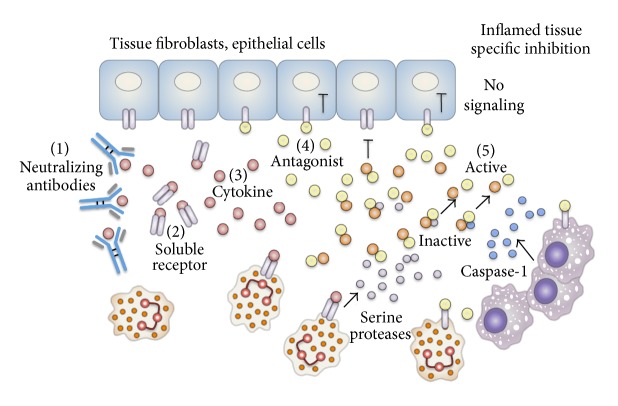Figure 1.
Biological drugs strategies for targeting inflammatory cytokines. The biologics can be composed of anticytokine or antireceptor neutralizing antibodies (1) or a soluble receptor that binds the cytokine (2). An inflammatory cytokine, like IL-1β, binds the IL-1R1 and the coreceptor IL-1R accessory protein (3) and transmits cell signaling, while an antagonist, like IL-1Ra, binds the receptor without recruiting the coreceptor (4), thus inhibiting signaling from the receptor and reducing the inflammation. Inflammation-dependent anticytokine strategy: enzymes such as neutrophil serine proteases or macrophage caspase-1 are released into the environment and cleave the two parts of the chimeric-IL-1Ra inactive precursor into an active antagonist (5), which blocks the receptors of tissue cells and the inflammatory cells.

